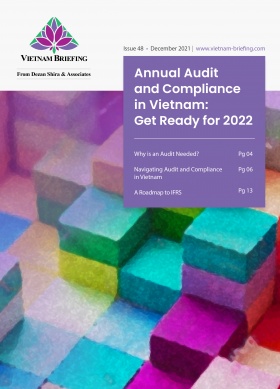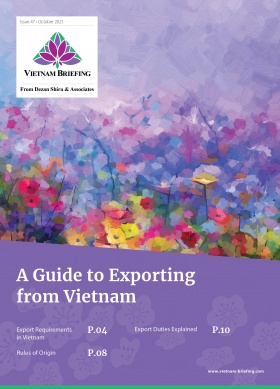Circulars 100 and 40: Guiding PIT and VAT Administration for Businesses and Individuals
Vietnam’s Ministry of Finance (MoF) issued Circular 100/2021/TT-BTC (Circular 100) which amended certain articles under Circular 40 on value-added tax (VAT), personal income tax (PIT), and tax administration for business households and individuals. Circular 100 comes into effect on January 1, 2022.
A significant element of Circulars 40 and 100 surrounds the issue of whether e-commerce platforms should declare and submit taxes from online transactions on behalf of businesses and individuals. Further, Circular 40 has set the threshold for the annual taxable revenue for households and individuals.
What are the amendments under Circular 100?
Under Circular 100, e-commerce organizations are not required to declare and pay taxes on behalf of individual sellers without authorization from January 1, 2022. This means that e-commerce platforms are only required to pay tax on behalf of businesses if they are authorized. E-commerce platforms can pay tax on behalf of businesses monthly or quarterly and will only need to do it once.
If the e-commerce organization does not pay taxes on behalf of the individual seller, the tax department will work with the e-commerce service in sharing information of the business individuals on the platform. Information that is provided includes name, owner, tax code, address, email, phone, sales revenue, and so on.
In addition, individuals who engage in property leasing with annual rental revenue of VND 100 million (US$4,364) or less, and the rental period is less than a year, are also not subject to PIT or VAT. Individuals with a monthly average of more than VND 8.33 million (US$365) are still subject to tax even if the lease period is less than a year as per Circular 40.
What are the provisions under Circular 40?
In June 2021, Vietnam’s Ministry of Finance issued Circular No. 40/2021/TT-BTC (Circular 40) which provides guidelines on PIT, VAT, and tax administration for businesses and individuals and replaced Circular 92.
Annual taxable revenue
Business households and business individuals with annual revenue of VND 100 million (US$4,364) or less are not subject to PIT or VAT.
E-commerce players subject to taxation
Individuals earning an income from e-commerce activities or those that provide digital products or services, and individuals having an income from the transfer of Vietnamese domains of ‘.vn’, are subject to taxation.
Taxation calculation method
Under Circular 40, there are three methods of conducting the calculation and declaration of taxes for individuals; the periodic declaration method; the separate (ad-hoc) method; and the presumptive method.
The periodic declaration method is now applicable to:
- Large-scale businesses; and
- Businesses that are not considered large-scale but choose to pay tax under the declaration method.
The criteria for large-scale businesses are those that have 10 or more employees and revenue of VND 3 billion (US$131,160) or more if they are in the agriculture sector, and VND 10 billion (US$437,000) or more if they operate in commerce or services.
Organizations responsible for declaring and paying taxes on behalf of individuals
Circular 40 provides that certain income paying organizations must declare and pay tax on behalf of businesses and households and individuals in the following cases:
- Organizations entering business cooperation with individuals;
- Organizations that pay bonuses, trade discounts, sales promotions, or other discounts to business households applying the presumptive taxation method; and
- Organizations that are partners of overseas digital platforms that do not have a permanent establishment in Vietnam. However this as has been amended as per Circular 100, where e-commerce platforms pay tax only when authorized.
About Us
Vietnam Briefing is produced by Dezan Shira & Associates. The firm assists foreign investors throughout Asia from offices across the world, including in Hanoi, Ho Chi Minh City, and Da Nang. Readers may write to vietnam@dezshira.com for more support on doing business in Vietnam.
We also maintain offices or have alliance partners assisting foreign investors in Indonesia, India, Singapore, The Philippines, Malaysia, Thailand, Italy, Germany, and the United States, in addition to practices in Bangladesh and Russia.
- Previous Article Vietnam to Commercialize 5G: What Should Investors Expect
- Next Article An Introduction to Doing Business in Vietnam 2022 – New Publication from Dezan Shira & Associates







